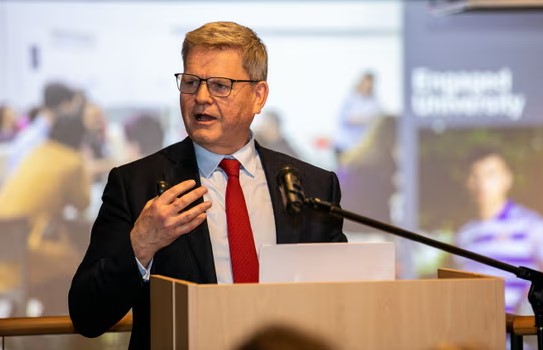Universities risk becoming “uniformities” of rigid ideas and self-censorship, according to the vice-chancellor of the University of Reading, who accused the government and his fellow university leaders of creating echo chambers on campus.
Robert Van de Noort told a seminar at the Houses of Parliament that vice-chancellors needed “to be more courageous themselves, and actively and explicitly promote a culture of diversity of thought” to overcome an “echo chamber” of academics amplifying identity politics and the government’s accountability measures which rewarded conformity over innovation.
Van de Noort said the “fundamental threat” to academic freedom was not that the higher education sector “occasionally” cancelled an external speaker on campus. “Rather, it has everything to do with a broader higher education world that seems to have become one in which one increasingly encounters beliefs or opinions that coincide with one’s own, so that existing views are reinforced, and alternative ideas are not considered,” he said.
“I am not the only vice-chancellor who has noted that colleagues far too often self-censor their views. Because, coming out as being the divergent voice in the echo chamber can feel like a career-limiting move.”
Van de Noort also attacked the government’s use of accountability measures that punished deviation in academic approaches by cutting off access to research funding.
“The desire to do well in official assessments is so important to status and funding that managers have a clear incentive to appoint and promote candidates who show a high degree of conformity and consistency with existing research paradigms, or mainstream pedagogy, rather than seeking out and appointing candidates with divergent views and opinions,” he said.
He claimed that government-backed assessments of economics were renowned for favouring researchers using neo-classical economics “to the exclusion of other theoretical approaches such as feminist or development economics”.


